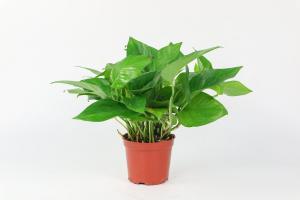Does Tap Water Chlorine Hurt Plant Seedlings?
Tap water is the most common source of water for plant seedlings. However, one of the biggest concerns of using tap water is the presence of chlorine. Chlorine is a disinfectant utilized by water treatment plants to eliminate harmful waterborne germs and pathogens. It is widely used because it is highly effective in killing bacteria, viruses and parasites. But does the presence of chlorine in tap water have a negative impact on plant seedlings?
Understanding Chlorine in Tap Water
Chlorine is a highly reactive gas, and it can cause different impacts on the plants than on humans. In tap water, chlorine exists as hypochlorite salt or liquid, which makes it highly unstable. When chlorine is added to tap water, it will react with many different chemicals and organic matter, which can alter its chemical properties.
The Impact of Chlorine on Plant Seedlings
Chlorine can impact plant seedlings in different ways. At first, it can damage the growth of the seedlings by slowing down their metabolism. This can result in a slower growth rate, smaller root systems, and less vigorous seedlings. Additionally, the chlorine in tap water can oxidize micronutrients such as iron or manganese, making them unavailable to the plant. This, in turn, can lead to nutrient deficiencies that impact the plant's growth and yield. Finally, the presence of chlorine can also affect the microbial community living in the soil, including beneficial microorganisms that help in decomposition and nutrient cycling.
Alternatives to Tap Water Chlorine
If you are concerned about the impact of tap water chlorine on your plant seedlings, there are alternatives that you can consider. One of the most popular alternatives is using a water filtration system. There are plenty of different water filters available in the market that can remove chlorine and other water contaminants from tap water. Additionally, collecting rainwater is another alternative for watering plant seedlings. Rainwater is naturally free of chlorine and may contain beneficial nutrients for the plant.
Conclusion
In conclusion, tap water is a commonly used source of water for plant seedlings. However, the presence of chlorine in tap water can impact the growth and vigor of plant seedlings in several ways. If you are concerned about the impact of chlorine, you can consider using water filters or collecting rainwater as an alternative source of water for your plants.

 how many times do yo...
how many times do yo... how many planted tre...
how many planted tre... how many pine trees ...
how many pine trees ... how many pecan trees...
how many pecan trees... how many plants comp...
how many plants comp... how many plants can ...
how many plants can ... how many plants and ...
how many plants and ... how many pepper plan...
how many pepper plan...






























